Beyond borders
Apr
07
Wherever we are in the world, we almost always meet a Hungarian, which always surprises us. The Faculty of Humanities and Social Sciences of the University of Pécs and the Pécs Regional Committee of the Hungarian Academy of Sciences have invited these Hungarians and their guests to the Diaspora 2025 Revitalisation conference on 3-4 April, which aims to take an interdisciplinary approach to revitalisation phenomena and experiments using the tools of different disciplines in order to maintain and revitalise languages and cultures and other social phenomena.
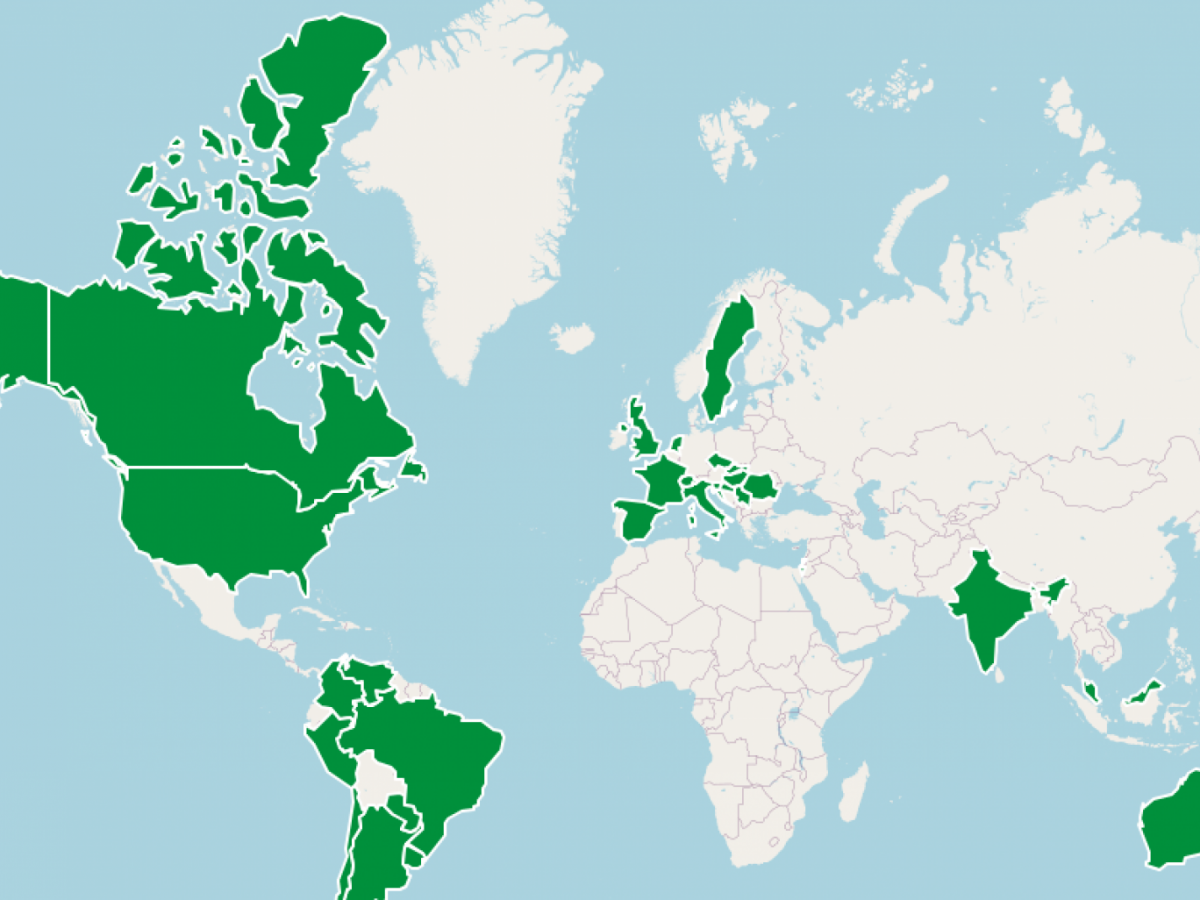
"There are about 15 million people in the world today who consider themselves Hungarian. Of these, roughly 9.8 million live within Hungary's current borders, and the rest live in the diaspora," reads the 2021 issue of the Forum Social Science Review, which means that - based on mathematical calculations - the Hungarian population of the diaspora is close to 5.2 million. PTE has always considered it important to maintain contacts with Hungarians who have come from Hungary, as the Universitas Quinqueecclesiensis Foundation (UQA), which maintains the university, has made networking with Hungarians from around the world a priority in its strategy.
This is why PTE has created the World Hungarians Network Platform (Diaspora Project Network), which aims to establish a kind of World Hungarian Centre.
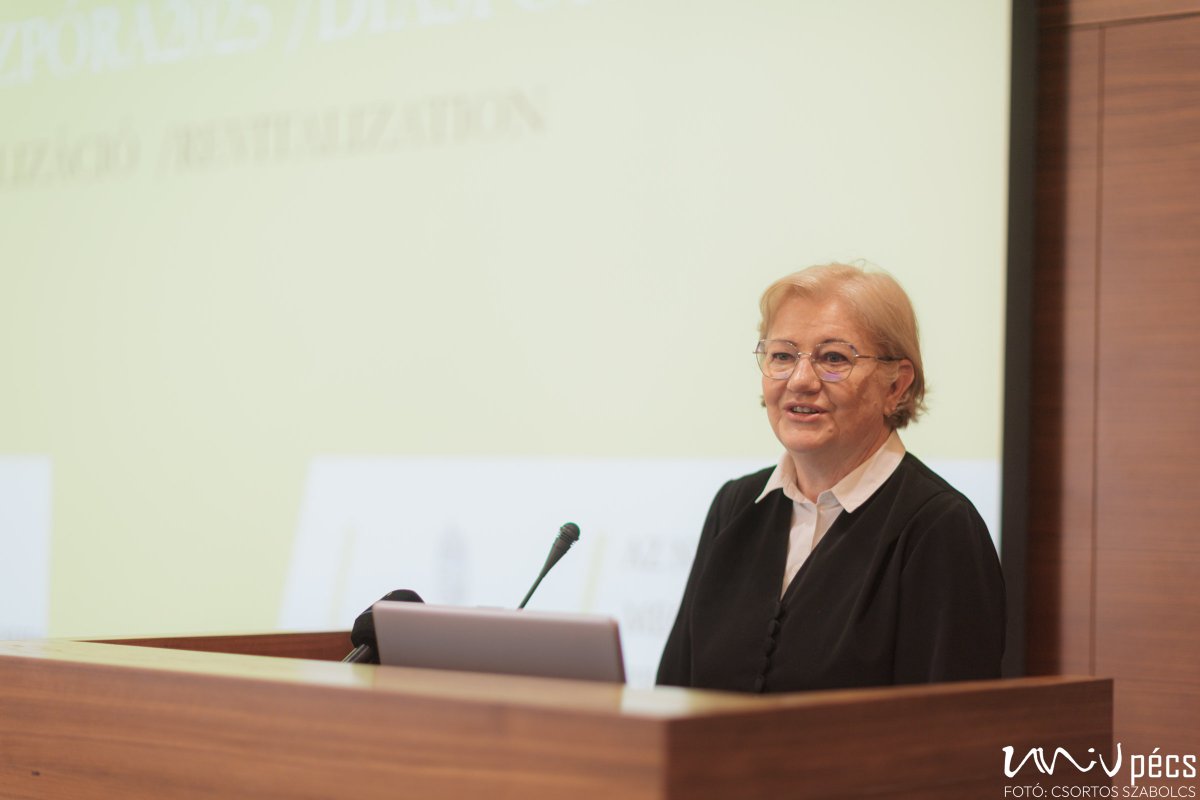
Dr. Katalin Szili, member of the UQA, the university's governing body, welcomed the participants on behalf of Lőrinc Nacsa, the Minister of State for National Policy, and asked why this endeavour is important. "Our Constitution clearly states: Hungary bears responsibility for Hungarians living beyond its borders. This responsibility imposes clear tasks on us: we have to create an institutional system that ensures dialogue and promotes the unity of the nation", she continued:
"Our university also wants to play an active role in this work. An important step in this direction is the framework agreement signed today with the National Strategic Research Institute."
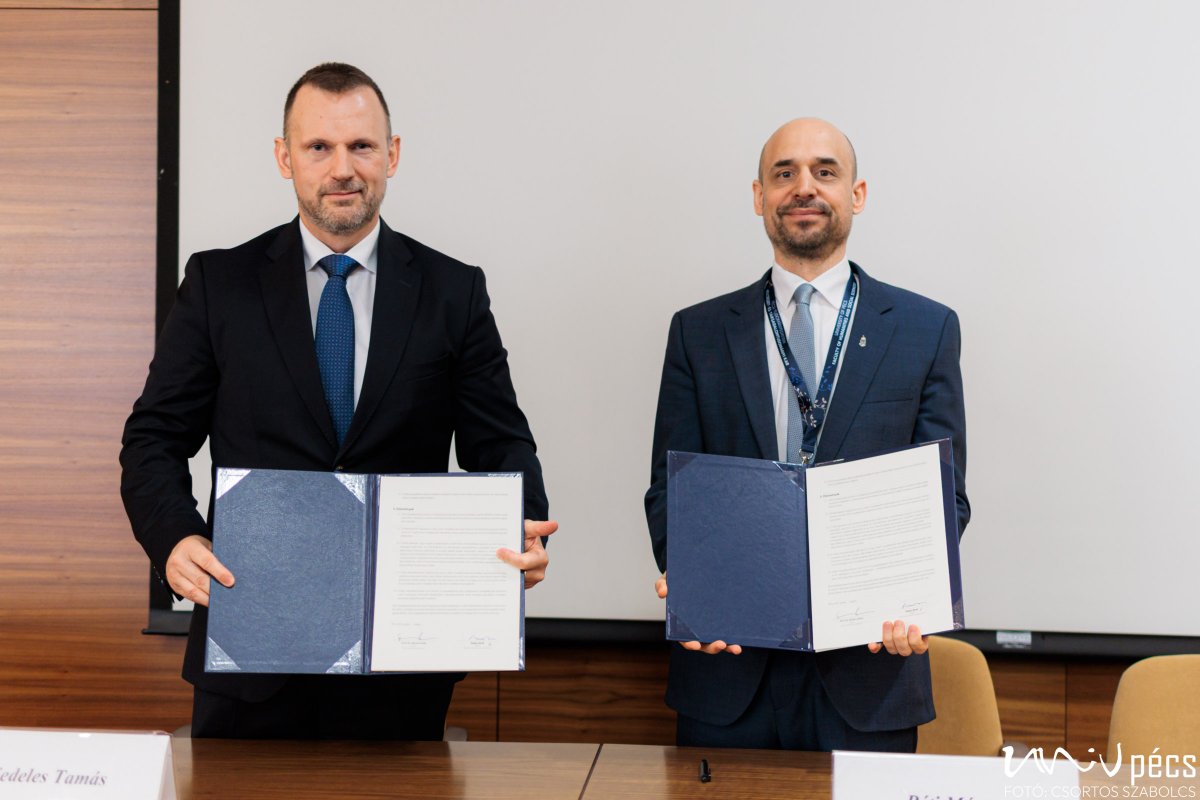
Dr. Jolán Orbán, Head of the Department of Modern Literary History and Literary Studies, said that the two-day conference was attended by participants from all over the world -
Australia, New Zealand, Brazil, Peru, the Netherlands, Finland, Austria, Romania and England.
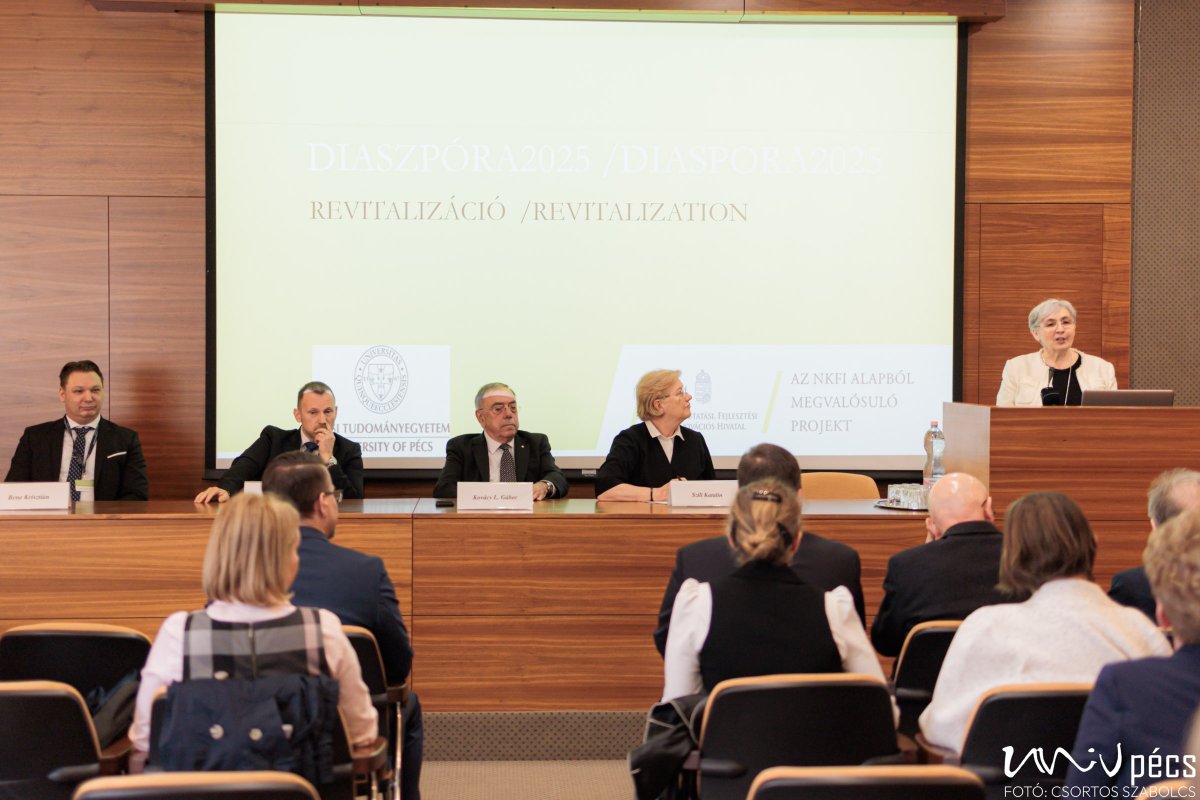
Dr. Katalin Szili noted that the recent experience has been that more and more people in the diaspora are looking for their roots. Third and fourth generational young people want to know more about their Hungarian ancestry and discover the culture of their ancestors. This is why it is of utmost importance for PTE to create opportunities for them to get involved in Hungarian educational and cultural life. The curator of the UQA said that
PTE wants to play a key role in this.
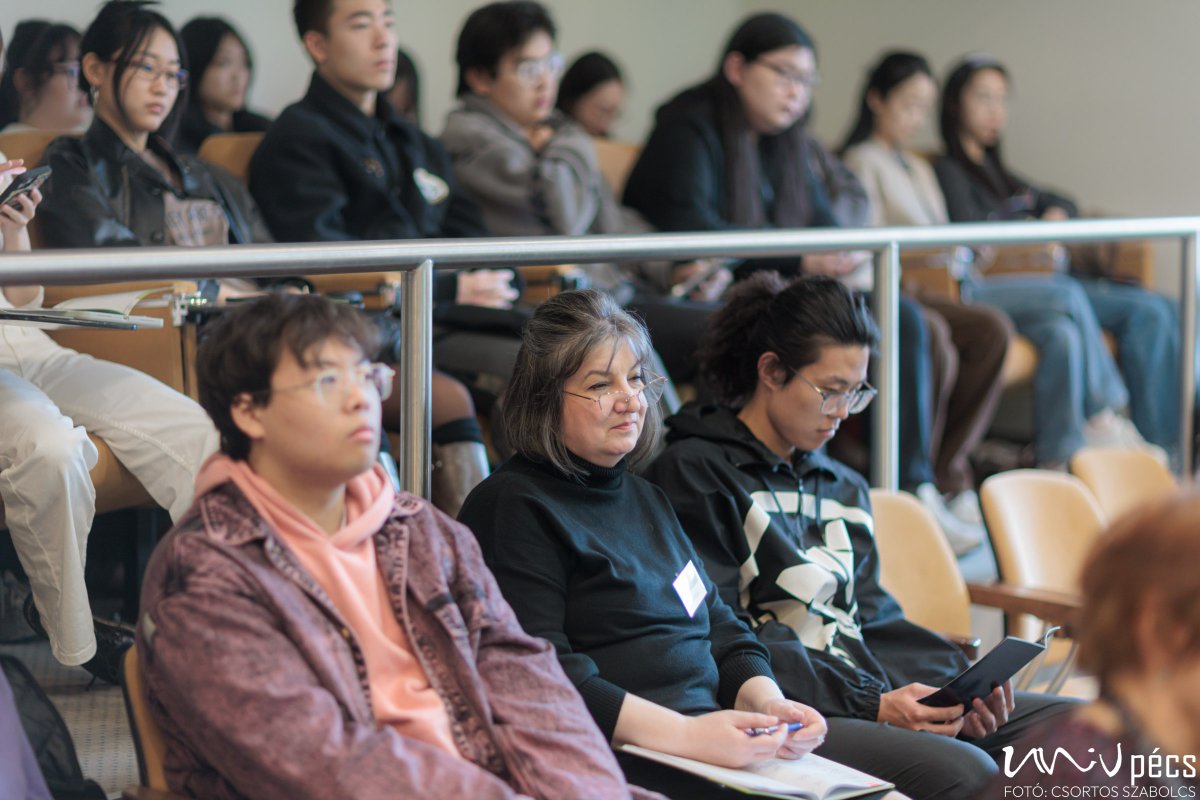
"This year, for the first time, three high school students from Australia were able to continue their studies at the University of Pécs' training school. We intend to develop this further through a scholarship programme, and we are confident that this initiative will strengthen our international relations in the long term. I would like to point out that the University of Pécs is the only institution that teaches music to young South Americans - even at night, because of the time difference. This also demonstrates our commitment to the preservation of the Hungarian language and culture", said Dr. Katalin Szili.
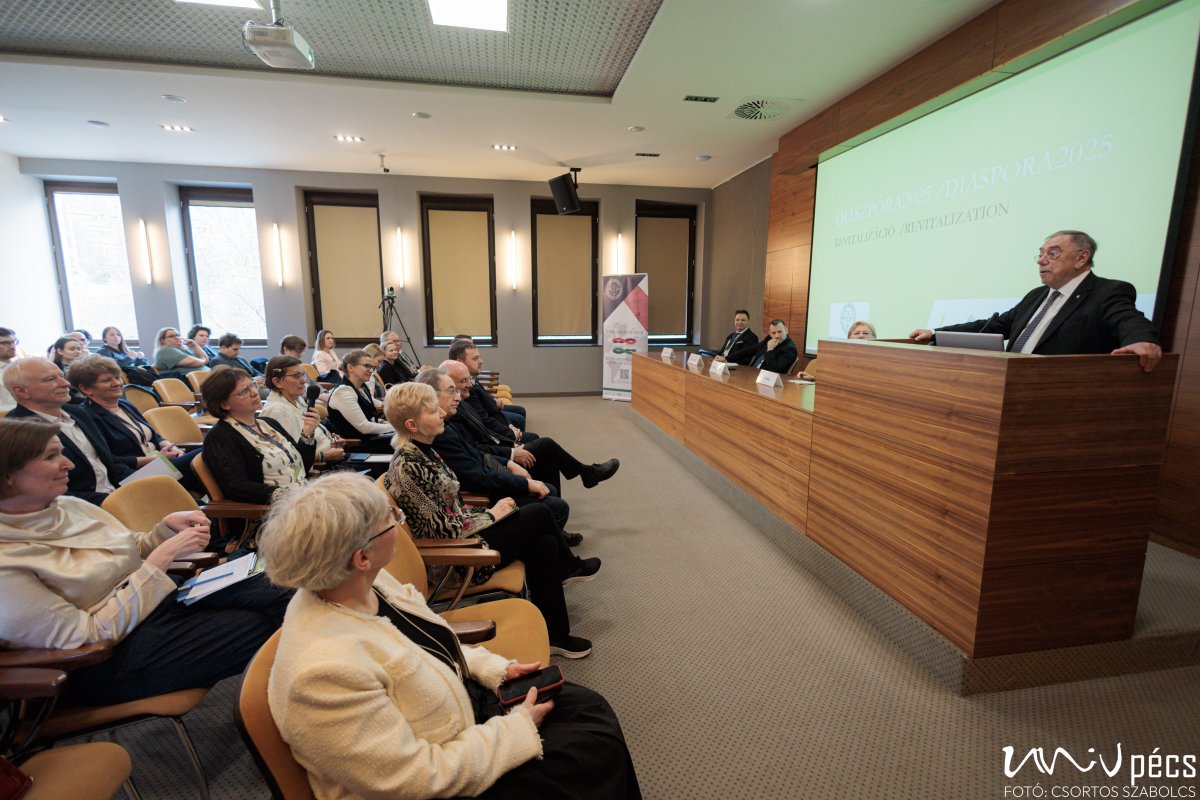
The President of the Pécs Regional Committee of the Hungarian Academy of Sciences, Dr. Gábor L. Kovács, highlighted in his speech that
the Hungarian Academy of Sciences is celebrating its 200th anniversary this year,
and a number of events are being organised throughout the country, as 2025/2026 is the Year of Hungarian Science.
The president also mentioned that
our Nobel Prize-winning biochemist, Dr. Katalin Karikó, visited the Szentágthai Research Centre,
and stressed that the scientific community has a responsibility not only to research, but also to inform society.
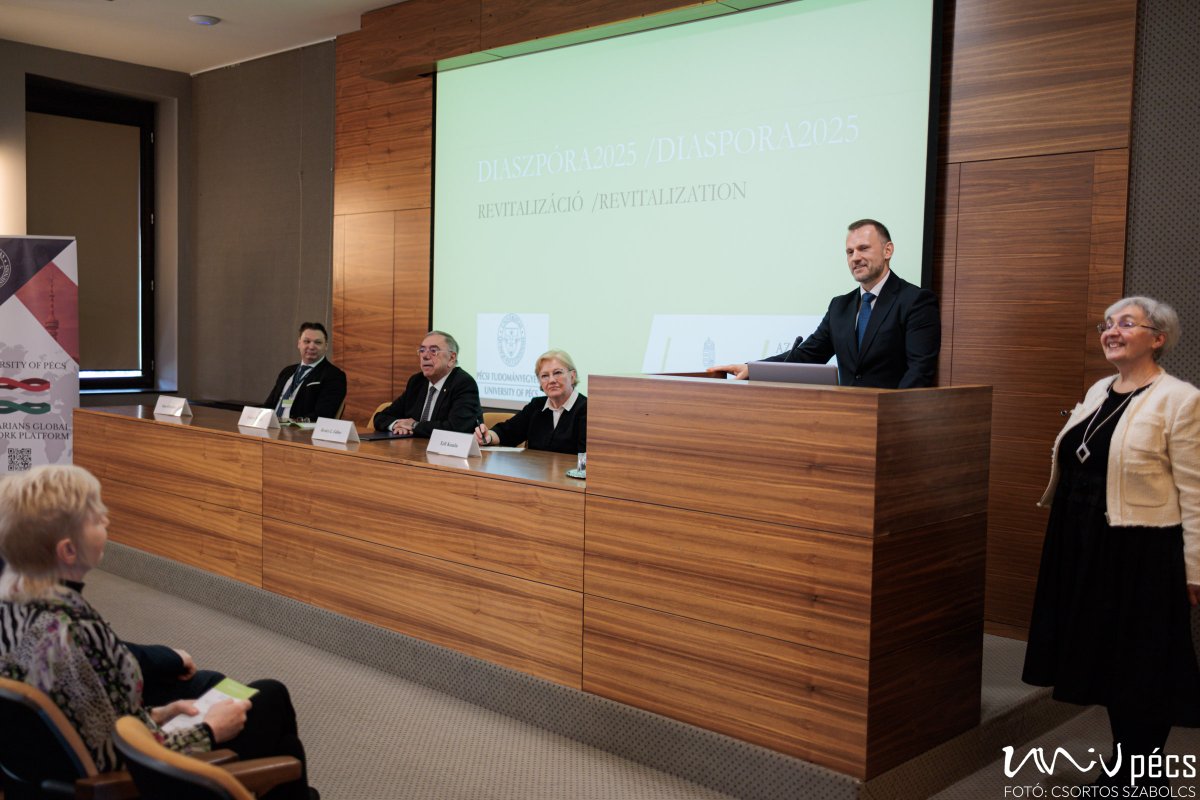
The Vice-Rector of PTE, Dr. Tamás Fedeles, highlighted the cooperation between the Faculty of Arts of PTE and Sapientia Hungarian University of Transylvania, where the Faculty of Arts of PTE has joined forces with Sapientia to start a Hungarian-language sculpture and painting course at the campus of Sapientia, which has recently become an independent faculty. The aim is for Sapientia to take over the programme fully after the first five-year training cycle and for PTE to help strengthen Hungarian-language art education.
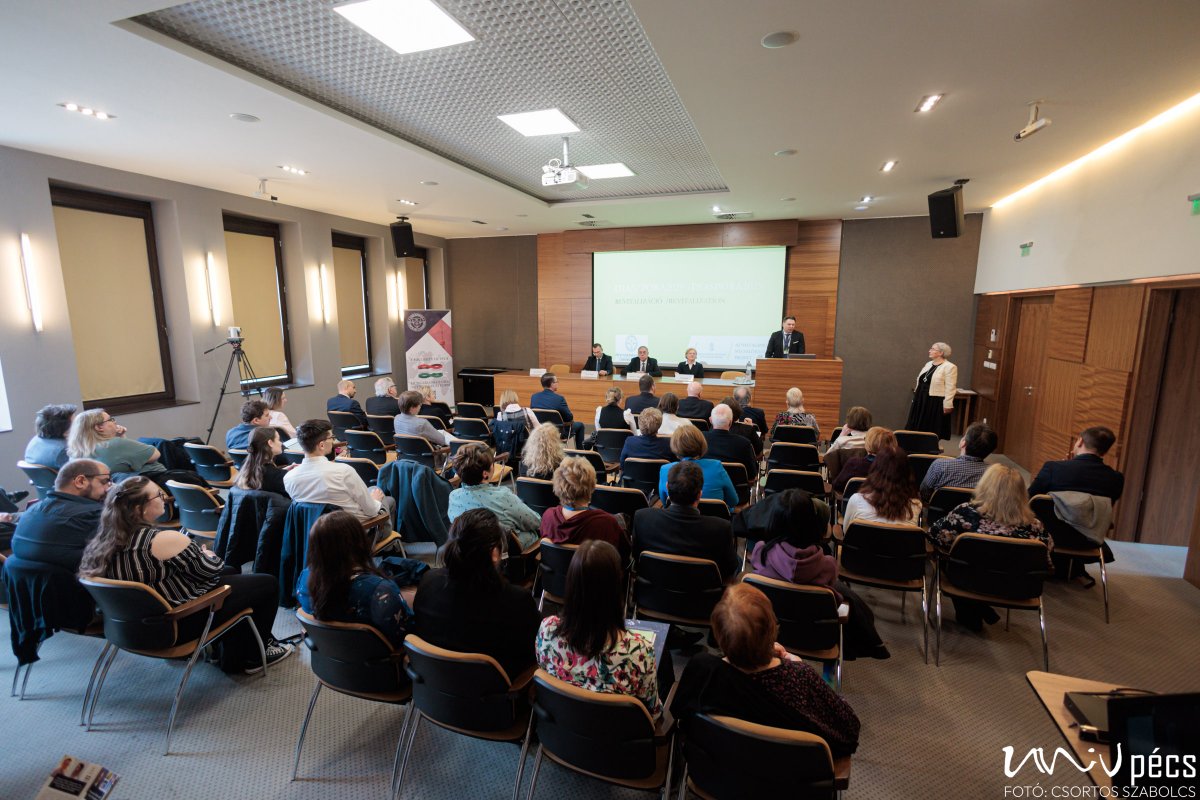
In his speech, the Dean of the Faculty of Humanities and Social Sciences, Dr. Krisztián Bene emphasized the diversity and the academic mosaic character of the faculty, which means the harmonious cooperation of different fields. He then shared a personal story. "In the course of my research, I came across more and more Hungarian names, and over time I built up a collection of them - initially in a shoebox, later in digital format. After ten years, I realised that this was actually my diaspora research," and humorously remarked that you can meet Hungarians all over the world.
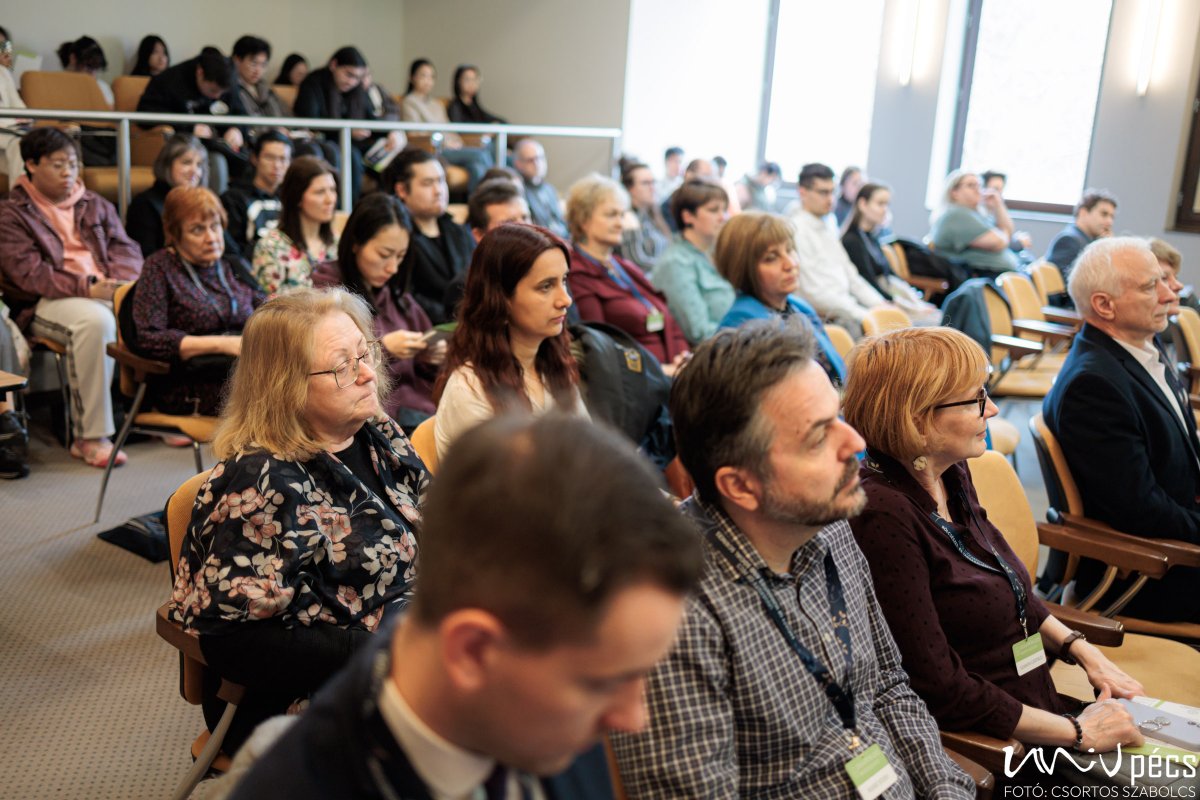
The conference will be summarised in a book,
which will provide a timeless record of the thoughts, research and experiences of participants and speakers. This volume will not only add to the scientific value of the conference, but will also provide an opportunity to disseminate the topics discussed to a wider audience.
More details:
Programme
Conference abstract booklet
Világmagyarság Podcast
